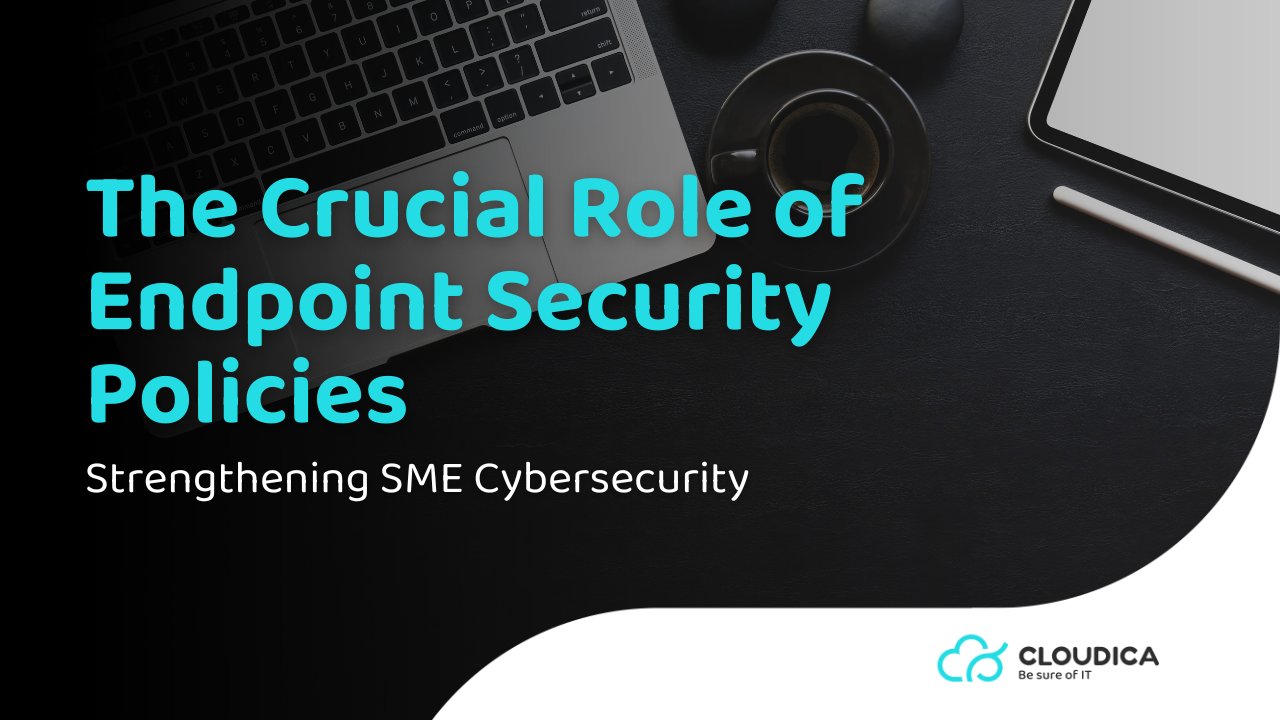As business owners dive into the complex world of endpoint security, the establishment and enforcement of strong endpoint security policies appear as pivotal factors in fortifying their cyber defences. This article explores the essential role of well-crafted and enforced endpoint security policies in enhancing SMEs’ overall cybersecurity posture.
The Landscape:
Endpoint security involves using various technologies and strategies to protect devices like computers, laptops, and mobile devices from harmful activities. Small and medium-sized enterprises (SMEs) often face difficulties due to limited resources and capabilities, making it tough to effectively put in place and manage strong security measures.
What is the Role of Endpoint Security Policies?
Endpoint security policies are the backbone of a thorough cybersecurity plan. These policies consist of guidelines and rules dictating how devices like computers should be used, configured, and protected within a company. The importance of well-defined endpoint security policies is clear in several key areas:
- Risk Mitigation:
- Endpoint security policies outline steps to reduce risks related to malware, ransomware, data breaches, and other cyber threats. Clearly defined security protocols help SMEs lower the chances of falling victim to these threats.
- Regulatory Compliance:
- Adherence to cybersecurity standards is crucial in today’s regulatory landscape. Endpoint security policies help in aligning with industry regulations and compliance requirements, steering clear of potential legal and financial consequences.
- Employee Awareness and Training:
- Clearly communicated policies contribute to increased employee awareness. Training programs built around these policies ensure that employees understand their role in keeping a secure endpoint environment.
- Consistent Security Practices:
- Well-defined policies set up a framework for consistent security practices across the organization. This consistency is vital in reducing vulnerabilities and preventing security gaps that might arise from inconsistent approaches.
What can happen if policies are inadequate?
Without clear and enforced endpoint security policies, small and medium-sized enterprises (SMEs) may face various vulnerabilities, such as inconsistent security practices, unprotected endpoints with no standardized configurations, and a higher risk of falling victim to social engineering attacks.
Rules for creating Strong Endpoint Security Policies
- Identify Risks
Look for potential threats and vulnerabilities through a thorough risk assessment tailored to your organization. Craft policies to effectively tackle these specific risks.
- Involve Employees
Include employees in the policy development process to ensure that the policies are practical, understood, and embraced by the workforce.
- Stay Updated
Since cyber threats evolve, keep your endpoint security policies up to date. Regularly review and revise them to address emerging threats and changes in your organizational landscape.
- Enforce Policies
Set clear enforcement mechanisms for your policies, specifying consequences for non-compliance. This helps foster a culture of accountability and responsibility.
Endpoint security policies are essential for small and medium-sized enterprises (SMEs) to safeguard against cyber threats. As they embrace digital transformation, teaming up with value-added integrators becomes crucial not just for security but for long-term success in the digital age. By focusing on creating, communicating, and enforcing strong endpoint security policies, SMEs can strengthen their defenses and ensure a resilient and secure digital environment.


